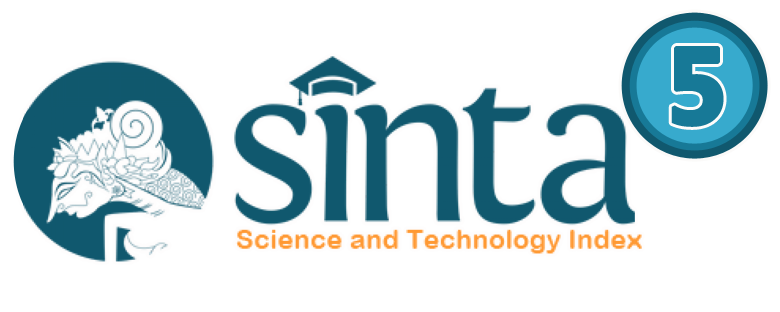PHILOSOPHIES UNDER MARXISM AND FEMINISM LITERARY THEORIES
Abstract
Karl Marx and Friedrich Engels developed a corpus of ideas known as Marxism or socialism. The postulates of the Marxist school of thought offer the theoretical framework for the working class's struggles to realize socialism as a superior form of human society. The abolitionist movement of the late 1830s can be linked to the history of feminist ideology. Elizabeth Cady and Lucretia Mott spearheaded the Seneca Falls human rights convention, which served as the. Most recent breakthroughs in feminist thought and practice continue to be disregarded by both Marxist theory and practice. The production of people under patriarchal relations is examined, and feminist theory focuses on the conflicts that arise between women and men as a result of their different relationships to these two types of production. This definition of production, which is frequently used in much Marxist literature, is challenged by feminist theory. Because women in their households typically deal with patriarchy as individuals, feminist practice places a strong emphasis on developing consensus tactics, supporting women in their particular challenges, and assisting each woman in feeling both her oppression and her strength. The left largely misunderstands the importance of this tactic. While feminist activism is just as revolutionary as class struggle, its goal is different: it seeks to overthrow patriarchy. A large portion of the left's hostility toward feminism appears to be the result of misinterpreting Mao's idea of "principal contradiction" to demand a class-first approach. The "primary contradiction" in the modern United States includes conflicts including class, gender, race, ethnicity, and age. Additionally, a fight that primarily targets gender dominance might also succeed in overturning. This paper aims to give a highlight under philosophies of Marxism and feminism literary theory.
Keywords
Full Text:
PDFReferences
Abrams, M.H. (1999). "Marxist Criticism." A Glossary of Literary Terms (7th ed). Fort Worth: Harcourt Brace College Publishers. 147-153.
Achebe, C. (1958). Things Fall Apart. Oxford: Heinemann.
Barry, P. (2003). Beginning Theory: An Introduction to Literary and Cultural Theory. Manchester: Manchester University Press.
Biddle, A. W., and Toby, F. (1989). Reading, Writing, and the Study of Literature. NY: Random House.
Britannica. (2022). Analysis of society. Retrieved from https://www.britannica.com/topic/ Marxism/Analysis-of-society.
Charles, B. (2003). Literary Criticism: An introduction to theory and practice. New Jersey: Prentice-Hall.
Delahoyde, M.(2011). Introduction to Literature. Washington State University https://public. wsu.edu/~delahoyd/marxist.crit.html.
Eagleton, T. (1976). Marxism and Literary Criticism. Berkeley: University of California Press.
Eagleton, T. (1996). Literary Theory: An Introduction (2nd ed.). Minneapolis: The University of Minnesota Press.
Eward-Mangione, A.(2020). Marxist Criticism. Retrieved from https://writingcommons.org/ section/research/research-methods/textual-methods/literary-criticism/marxist-criticism/
Genova,F. Okoroegbe, F. Kehinde,A and Iwuchukwu, O.(n.d.). Literary Theory and Criticism.
National Open University of Nigeria. Retrieved from https://www.nou.edu.ng/sites /default/files/ 2018-03/ENG415%20LIT.%20THEORY%20AND%20CRITICISM.pdf
Golban,P and Ciobanu,E.A .(2008). A Short History of Literary Criticism. Üç Mart Press: Kütahya.
Habib M. A. R. (2011). Literary Criticism from Plato to the Present: An Introduction. UK Wiley-Blackwell.
Habib,M. A. R.(2005). A History of Literary Criticism : From Plato to the Present. Blackwell Publishing Ltd.
History.Com Editors. (2021). Feminism. Retrieved from https://www.history.com/topics/ womens-history/feminism-womens-history
Jeremy,H.(2003). A Glossary of Contemporary Literary Theory, London: Arnold.
Knellwolf, C. (2001). The history of feminist criticism. The Cambridge History of Literary Criticism. Cambridge: Cambridge University Press.191 206.Retrived from https://doi.org/10.1017/CHOL9780521300148.017
LeRoy, G and Beitz,U. (1974). The Marxist Approach From Modernism to Post-Modernism. Journal of Modern Literature. Vol. 3, No. , pp. 1158-1174 Published by: Indiana University Press. Retrieved from https://www.jstor.org/stable/3831002
Lukacs, G. (1971).History and Class Consciousness. (1923 Trans. Rodney Livingstone). Cambridge, Mass.: The MIT Press.
Lynn, S.(1998). Texts and Contexts: Writing About Literature with Critical Theory (2nd ed). NY: Longman.
Mambrol,N.(2016). Marxism and Literary Theory. Retrieved from https://literariness.org/ 2016/04/12/marxism-and-literary-theory/
Murfin, R, and Supryia M. R.(1997). The Bedford Glossary of Critical and Literary Terms. Boston: Bedford Books.
Napikoski,L.(2020). Feminist Literary Criticism. Retrieved from https://www.thoughtco.com/ feminist-literary-criticism-3528960
Poblacion,A. (2015).Literary Criticism: Marxist Theory. Retrieved from https://prezi.com/ oaunmuxexxfc/literary-criticism-marxist-theory/
Quizlet Inc.(2022). Feminism (Features, Strengths, and Weaknesses). https://quizlet.com /182500930/feminism-features-strengths-and-weaknesses-flash-cards/
Sawant,G.D.(2011). Perspectives on Postcolonial Theory: Said, Spivak and Bhabha. Retrieved from https://www.researchgate.net/publication/271633479
Stanford Encyclopedia of Philosophy.(2020). Marxism. Retrieved from https://plato.stanford. edu/entries/marx/Firstpublished
Thompson, K.(2016). Liberal, Marxist and Radical Feminist Perspectives on Society: An Introduction. Retrieved from https://revisesociology.com/2016/07/11/liberal-radical-marxist-feminist-perspectives-society-sociology/
Tyson,L.(2006). Critical Theory Today: A User-Friendly Guide (2nd ed). Routledge.
UKEssays. (November 2018). The Strengths and Weaknesses of Marxism. Retrieved from https://www.ukessays.com/essays/sociology/the-strengths-and-weaknesses-of-marxism-sociology-essay.php?vref=1
University of Texas Arlington Libraries. (2021). Literary Criticism: Literary Theories. The University of Texas at Arlington. Retrieved from https://libguides.uta.edu/literary criticism/theories
DOI: https://doi.org/10.36269/sigeh.v3i1.1490
Refbacks
- There are currently no refbacks.

This work is licensed under a Creative Commons Attribution-ShareAlike 4.0 International License.
ISSN ONLINE: 2775-8834




1.png)










